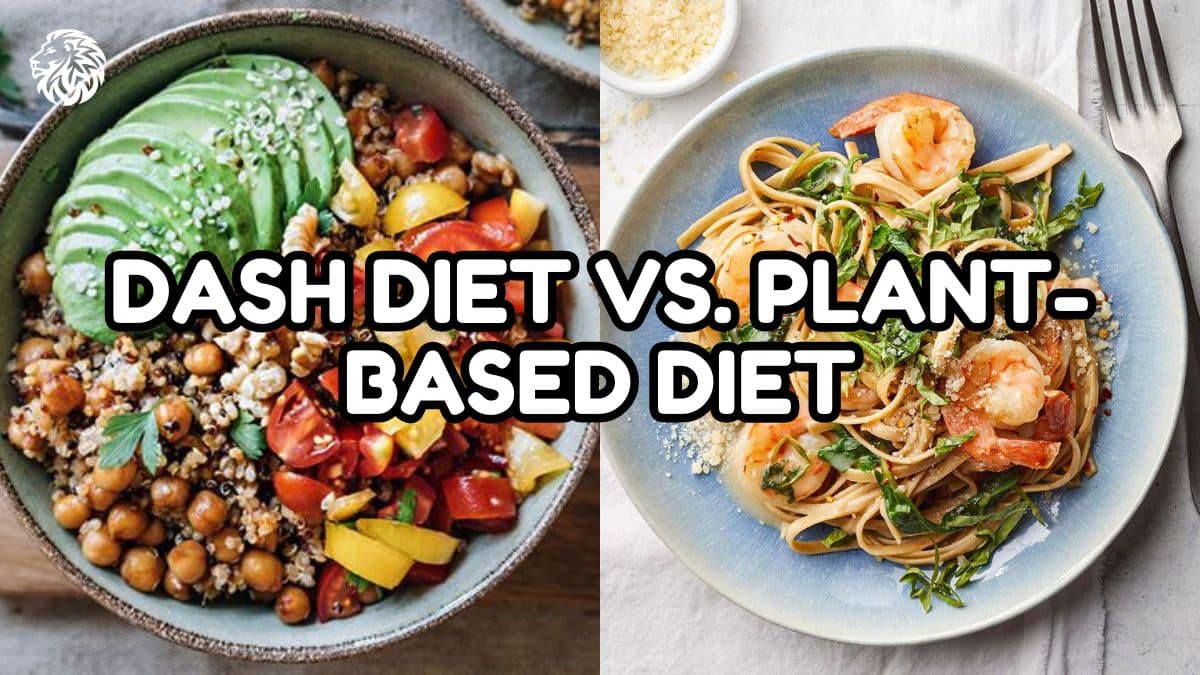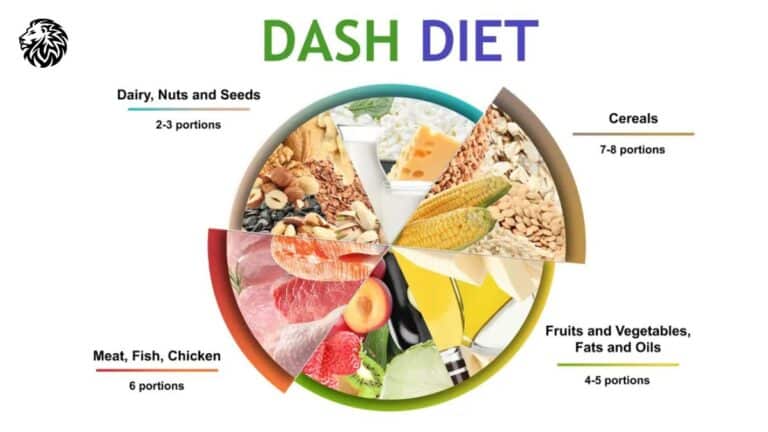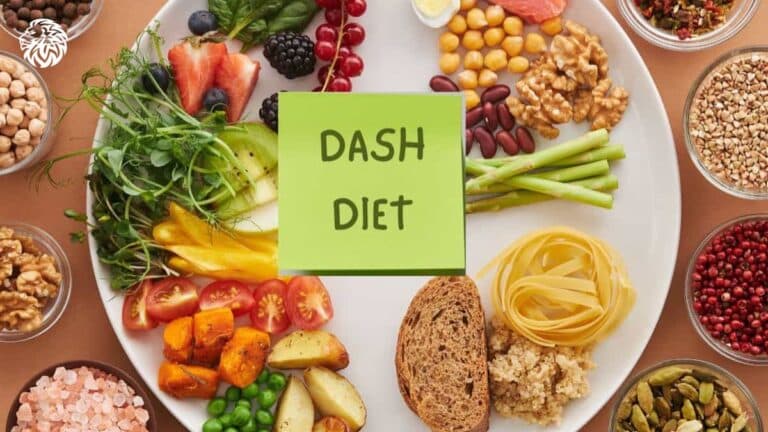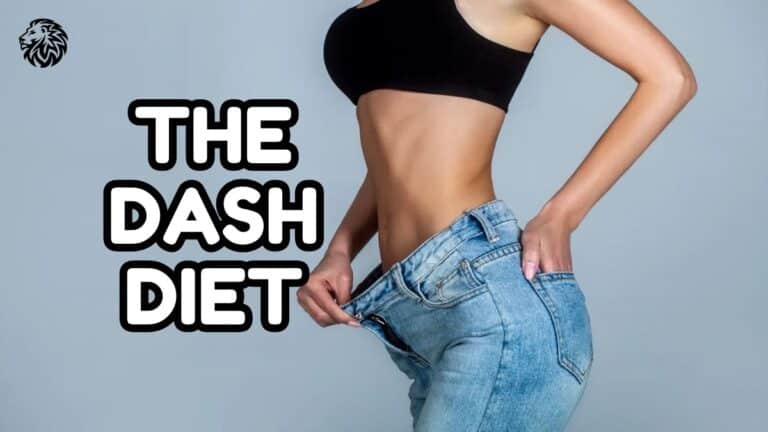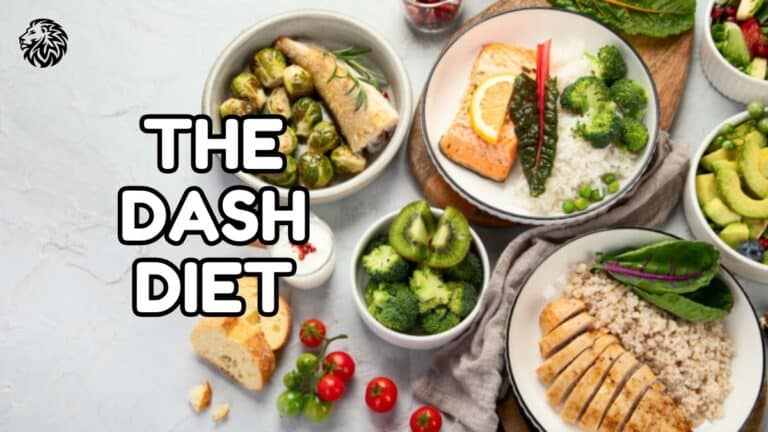Both the DASH Diet and plant-based diets are popular for their health benefits, particularly for supporting heart health, weight management, and overall well-being. While each offers a unique approach to healthy eating, understanding the core principles, benefits, and potential challenges of each diet can help you choose the one that best aligns with your lifestyle and health goals.
Understanding the DASH Diet
The DASH Diet, which stands for Dietary Approaches to Stop Hypertension, focuses on reducing sodium intake to support healthy blood pressure levels. Originally developed to help people manage or prevent hypertension, the DASH Diet emphasizes balanced, nutrient-dense foods without strict elimination. Key components of the DASH Diet include:
- Emphasis on Fruits and Vegetables: These foods provide essential vitamins, minerals, and fiber.
- Whole Grains and Lean Proteins: Complex carbs and lean proteins are preferred over refined grains and red meats.
- Low-Fat Dairy Products: These supply calcium and protein while keeping saturated fat low.
- Reduced Sodium: A primary goal of the DASH Diet is to keep sodium intake low, around 1,500 to 2,300 mg per day.
- Healthy Fats: DASH recommends heart-healthy fats from sources like olive oil, nuts, and seeds.
The DASH Diet is structured to support balanced eating with an emphasis on heart health, and it’s known for being flexible enough to fit into most lifestyles.
Exploring Plant-Based Diets
Plant-based diets focus primarily on foods from plants, including fruits, vegetables, nuts, seeds, whole grains, and legumes. There is a wide spectrum within plant-based eating, from strict veganism, which excludes all animal products, to more flexible options like vegetarianism or even plant-forward eating, which includes occasional animal-based foods. Key components of a plant-based diet include:
- Abundant Fruits and Vegetables: These form the foundation of a plant-based diet and provide antioxidants, fiber, and phytonutrients.
- Whole Grains and Legumes: Complex carbohydrates and plant-based proteins are emphasized, supporting a balanced diet.
- Plant-Based Proteins: Legumes, tofu, tempeh, and other plant proteins are prioritized over animal sources.
- Healthy Fats from Plants: Sources like avocados, nuts, seeds, and plant oils provide essential fatty acids.
- Low or No Animal Products: Many plant-based eaters reduce or eliminate animal products, depending on their dietary preferences.
Plant-based diets can vary widely in terms of restrictions, making them adaptable to individual needs and preferences.
Health Benefits: DASH vs. Plant-Based Diets
Both diets offer considerable health benefits, but they emphasize different approaches to achieve optimal health.
Heart Health
- DASH Diet: Specifically designed to combat high blood pressure, the DASH Diet is supported by research showing it can lower systolic blood pressure by several points in just a few weeks. By reducing sodium and focusing on nutrient-dense foods, it helps maintain lower blood pressure and supports heart health.
- Plant-Based Diet: Plant-based eating is associated with lower cholesterol levels and a reduced risk of heart disease. Since it’s typically lower in saturated fats and higher in fiber, a plant-based diet can also help in maintaining healthy blood pressure and cholesterol levels, which contribute to heart health.
Weight Management
- DASH Diet: The balanced structure of the DASH Diet naturally supports weight management by emphasizing portion control and nutrient-dense foods over high-calorie, processed items. Its flexible nature allows for sustainable weight loss without extreme restrictions.
- Plant-Based Diet: Many find plant-based diets effective for weight loss due to the high fiber content, which promotes fullness and can reduce calorie intake. Studies also show that people following plant-based diets tend to have lower BMIs compared to those on standard diets.
Diabetes Management
- DASH Diet: The DASH Diet has been shown to improve insulin sensitivity and reduce the risk of type 2 diabetes. Its focus on whole grains, lean proteins, and low-fat dairy helps regulate blood sugar levels without causing spikes.
- Plant-Based Diet: Plant-based diets rich in fiber and low in refined sugars and fats are often beneficial for managing diabetes. Research suggests that individuals on plant-based diets experience improved blood sugar control, and in some cases, may reduce their reliance on diabetes medications.
Nutritional Considerations
While both diets are nutrient-dense, there are specific nutritional factors to consider for each.
- DASH Diet: This diet includes a variety of nutrients but may still fall short in providing enough plant-based protein sources for those looking to reduce meat intake. For individuals reducing red meat but not following a strictly plant-based plan, ensuring adequate iron and B12 intake is important.
- Plant-Based Diet: Plant-based diets can lack certain nutrients commonly found in animal products, such as B12, iron, and omega-3 fatty acids. However, these can often be obtained from fortified foods or supplements, and omega-3s can be sourced from plant oils like flaxseed or chia seeds.
Practicality and Flexibility
DASH Diet
The DASH Diet is relatively easy to follow, especially for those who aren’t looking to eliminate entire food groups. It’s accessible for individuals who prefer a balanced diet that includes moderate portions of dairy, meat, and grains. Additionally, the DASH Diet does not impose strict rules on food sourcing, making it adaptable for various lifestyles.
Plant-Based Diet
Plant-based diets require a bit more planning, especially if aiming for a strict vegetarian or vegan approach. Plant-based diets often involve more preparation, as many packaged and convenience foods contain animal products. However, as plant-based eating becomes more popular, options are expanding, with more plant-based foods readily available.
Choosing the Right Diet for You
When deciding between the DASH Diet and a plant-based diet, consider the following factors:
- Health Goals: If you’re primarily focused on managing high blood pressure, the DASH Diet offers a targeted approach. However, if you’re interested in lowering cholesterol, a plant-based diet could be more effective.
- Dietary Preferences: People who prefer an omnivorous diet with moderate restrictions may find DASH easier to maintain. Those looking to reduce or eliminate animal products may find a plant-based diet aligns better with their values and lifestyle.
- Lifestyle Needs: For a busy lifestyle, the flexibility of the DASH Diet may make meal planning simpler. However, many plant-based eaters find that with a little extra preparation, plant-based eating becomes second nature.
Challenges of Each Diet
Both diets come with their own challenges, and it’s important to understand them to set yourself up for success.
- DASH Diet Challenges: Reducing sodium intake can be challenging, especially with the prevalence of high-sodium processed foods. However, gradually lowering sodium and focusing on whole foods can make this easier.
- Plant-Based Diet Challenges: Avoiding animal products can be challenging for those transitioning from an omnivorous diet. It may require more effort to meet nutrient needs, particularly for B12, iron, and omega-3s, but this can be managed with supplements or fortified foods.
Sample Meal Plans
To illustrate how each diet might look, here are sample meal plans for a day on each diet:
DASH Diet Sample Meal Plan
- Breakfast: Greek yogurt with fresh berries and a sprinkle of oats.
- Lunch: Grilled chicken salad with a variety of colorful veggies, a drizzle of olive oil, and a dash of vinegar.
- Dinner: Baked salmon with steamed broccoli and a side of quinoa.
- Snacks: An apple with a handful of almonds.
Plant-Based Diet Sample Meal Plan
- Breakfast: Smoothie with spinach, banana, berries, and a scoop of plant-based protein powder.
- Lunch: Quinoa salad with chickpeas, cucumber, tomatoes, and tahini dressing.
- Dinner: Lentil and vegetable stir-fry over brown rice.
- Snacks: Carrot sticks with hummus.
Final Thoughts
Both the DASH Diet and plant-based diets offer substantial health benefits, from heart health to weight management and improved blood sugar control. If you prioritize flexibility and enjoy a variety of foods, the DASH Diet may be a good fit. On the other hand, if reducing animal products aligns with your values and you’re focused on long-term health benefits, a plant-based diet could be ideal.
Whichever you choose, both diets are backed by research and promote balanced, nutritious eating. The best diet is the one that fits your lifestyle, aligns with your health goals, and can be maintained over the long term.
Frequently Asked Questions: DASH Diet vs. Plant-Based Diet
1. What is the main difference between the DASH Diet and a plant-based diet?
The DASH Diet focuses on reducing sodium to support heart health and blood pressure management, allowing for moderate intake of lean meats and low-fat dairy. A plant-based diet emphasizes whole, plant-derived foods, often with little to no animal products, which promotes heart health and may aid in cholesterol reduction.
2. Can the DASH Diet include plant-based options?
Yes, the DASH Diet can easily incorporate plant-based foods like fruits, vegetables, whole grains, nuts, and seeds, which are already key elements of both diets. Many people combine principles of the DASH and plant-based diets for added flexibility and nutritional benefits.
3. Which diet is better for weight loss: DASH or plant-based?
Both diets can support weight loss. The DASH Diet encourages balanced, portion-controlled meals, while a plant-based diet is naturally high in fiber, which promotes fullness and can reduce calorie intake. Success with either approach depends on overall calorie balance and food choices.
4. Are there specific foods to avoid on the DASH Diet and a plant-based diet?
On the DASH Diet, foods high in sodium, added sugars, and saturated fats should be limited. Plant-based diets generally avoid animal products and processed foods with added sugars or unhealthy fats, though occasional animal products are allowed depending on the level of adherence.
5. Do I need supplements on the DASH Diet or a plant-based diet?
The DASH Diet typically meets nutrient needs if balanced properly, though people reducing meat might need extra iron or B12. Strict plant-based eaters may require supplements for B12, iron, and omega-3 fatty acids, which are less abundant in a vegan diet but can be sourced from fortified foods or supplements.
6. Which diet is more effective for lowering blood pressure?
The DASH Diet was specifically designed to lower blood pressure, and research shows it can be highly effective. However, plant-based diets, especially those low in processed foods and high in fiber, also support heart health and blood pressure management.
7. Are these diets sustainable for long-term health?
Both diets are sustainable for long-term health if balanced properly. The DASH Diet offers a flexible, low-sodium approach to eating, while a plant-based diet can be nutritionally complete and support longevity when diverse plant foods are included.
8. Can I switch between the DASH Diet and a plant-based diet?
Yes, many people blend elements of both diets, such as eating mostly plant-based while following DASH principles for sodium control. This hybrid approach can be both flexible and health-supportive, meeting a range of dietary preferences and goals.
9. Which diet is better for managing diabetes?
Both diets can help manage diabetes, but research shows plant-based diets may improve blood sugar control due to their high fiber content and low glycemic index. The DASH Diet’s balanced carb intake and low-sugar approach can also be effective for diabetes management.
10. Do these diets require meal planning or special foods?
Both diets benefit from some level of meal planning, especially if you’re reducing sodium or avoiding animal products. Whole foods like vegetables, fruits, grains, nuts, and legumes are the foundation of both diets and are easy to find in most grocery stores.
References
- Physicians Committee for Responsible Medicine. (2023, June 2). Whole-food, plant-based diet may improve metabolic health more than DASH diet. https://www.pcrm.org/news/health-nutrition/whole-food-plant-based-diet-may-improve-metabolic-health-more-dash-diet
- Poddar, S., Holscher, C. H., & Grijalva, C. G. (2023). Effects of plant-based dietary patterns and DASH diet on metabolic syndrome. ScienceDirect. https://doi.org/10.1016/j.livres.2023.06.002
- Sullivan, K. (2020, August 11). Why the top-ranked DASH diet actually works. Today. https://www.today.com/health/why-top-ranked-dash-diet-actually-works-t195594
- National Library of Medicine. (2023, July 7). Association between plant-based dietary patterns and cardiovascular health. PubMed. https://pubmed.ncbi.nlm.nih.gov/37419391/
- Harvard Health Publishing. (2021, March). The right plant-based diet for you. Harvard Medical School. https://www.health.harvard.edu/staying-healthy/the-right-plant-based-diet-for-you
